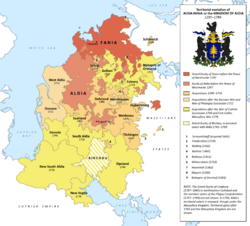Kingdom of Aldia: Difference between revisions
mNo edit summary |
mNo edit summary |
||
| Line 56: | Line 56: | ||
| HDI_year = | | HDI_year = | ||
}} | }} | ||
The '''Kingdom of Aldia''' ({{wp|German language|Hesurian}}: ''Königreich Alden'', <small>pronounced:</small> {{wp|Help:IPA/Standard German|[ˈkø:nɪgʁaɪ̯ç ˈaldən]}}) was a {{wp|sovereign state}} and [[Mascylla|Mascyllary]] {{wp|kingdom}} centered around the historical state of Aldia and additional territories in northern and central Mascylla from 1647 until 1923. It was the leading nation in the unification process of Mascylla in the [[War of the Five Kings]], and the dominant economic, military, and political power within the [[Mascyllary Kingdom]] until its dissolution in 1924. | The '''Kingdom of Aldia''' ({{wp|German language|Hesurian}}: ''Königreich Alden'', <small>pronounced:</small> {{wp|Help:IPA/Standard German|[ˈkø:nɪgʁaɪ̯ç ˈaldən]}}) was a {{wp|sovereign state}} and [[Mascylla|Mascyllary]] {{wp|kingdom}} centered around the historical state of Aldia and additional territories in northern and central Mascylla from 1647 until 1923. It was the leading nation in the unification process of Mascylla in the [[War of the Five Kings]], and the dominant economic, military, and political power within the [[Mascyllary Kingdom]] until its dissolution in 1924. | ||
| Line 73: | Line 72: | ||
===Mascyllary unification=== | ===Mascyllary unification=== | ||
==List of Kings of Aldia== | ==List of Kings of Aldia== | ||
{{Template:History of Mascylla}} | |||
This list details all ''Kings of Aldia'' (1647–present). Every single monarch is either of the [[House of Lünburg]] or its successor [[House of Ahnern]] and Ahnern-Welsbach. With the [[Mascyllary Revolution]] in 1924, the monarchy of Aldia is generally considered to be dissolved, even though the constitutional institution and style of "King" or "Queen of Aldia" is retained by the [[Monarchy of Mascylla|Mascyllary monarch]]. However, the modern-day Free State of Aldia is defined as a {{wp|Federation|federal}} {{wp|semi-presidential republic|semi-presidential}} {{wp|republic}} by its state constitution and therefore ''de facto'' without monarchy, but remains within the Mascyllary monarchy at large as a devolved [[Mascylla#Administrative divisions|federated state]] (''Reichsland''). | This list details all ''Kings of Aldia'' (1647–present). Every single monarch is either of the [[House of Lünburg]] or its successor [[House of Ahnern]] and Ahnern-Welsbach. With the [[Mascyllary Revolution]] in 1924, the monarchy of Aldia is generally considered to be dissolved, even though the constitutional institution and style of "King" or "Queen of Aldia" is retained by the [[Monarchy of Mascylla|Mascyllary monarch]]. However, the modern-day Free State of Aldia is defined as a {{wp|Federation|federal}} {{wp|semi-presidential republic|semi-presidential}} {{wp|republic}} by its state constitution and therefore ''de facto'' without monarchy, but remains within the Mascyllary monarchy at large as a devolved [[Mascylla#Administrative divisions|federated state]] (''Reichsland''). | ||
{|style="text-align:center; width:60%" class="wikitable" | {|style="text-align:center; width:60%" class="wikitable" | ||
Latest revision as of 19:17, 4 February 2023
This article is incomplete because it is pending further input from participants, or it is a work-in-progress by one author. Please comment on this article's talk page to share your input, comments and questions. Note: To contribute to this article, you may need to seek help from the author(s) of this page. |
Kingdom of Aldia Königreich Alden (Hesurian)
| |
|---|---|
| 1647–1924 | |
| Motto: Nihil sine Deo Nichts ohne Gott ("Nothing without God") | |
| Anthem: Aldensang Chant of Aldia | |
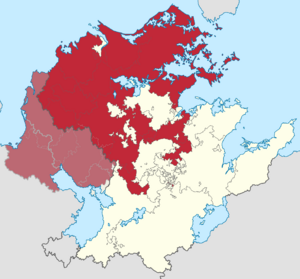 Aldia within the Mascyllary Kingdom with territories lost in 1840 | |
| Status |
|
| Capital | Augusthal (official capital of the kingdom until 1793) Lancaide (national capital in 1794–1811) Königsreh |
| Common languages | Hesurian (official) |
| Demonym(s) | Aldian |
| Government | Feudal monarchy (1647–1714) Absolute monarchy (1714–1850) Federal semi-constitutional monarchy (1850–1924) |
| King | |
• 1647–1679 (first) | William Louis I |
• 1883–1923 (last) | Louis I |
| Historical era | Renaissance – Early modern period |
• Peace in Hubertsburg | 1647 |
• Constitution adopted | 9 June 1715 |
| 24 June 1786 | |
• Elbgau Confederation founded | 6 October 1787 |
| 23 May 1793 | |
• Constitution adopted | 20 February 1850 |
| 23 May 1923 1924 | |
| Currency | Thaler 1297–1582 Königsthaler 1583–1790 Reichsthaler 1791–1793 Karning 1794–1923 |
The Kingdom of Aldia (Hesurian: Königreich Alden, pronounced: [ˈkø:nɪgʁaɪ̯ç ˈaldən]) was a sovereign state and Mascyllary kingdom centered around the historical state of Aldia and additional territories in northern and central Mascylla from 1647 until 1923. It was the leading nation in the unification process of Mascylla in the War of the Five Kings, and the dominant economic, military, and political power within the Mascyllary Kingdom until its dissolution in 1924.
The kingdom was created from the unified Grand Duchy of Aldia–Fania following the conclusion of the Peace in Hubertsburg, the Dorsace War, and the X War in its entirety at large in 1647 by William Louis I. As a maritime and agricultural power, it grew to become one of the most influential Mascyllary states by the 18th century. After the gradual decline and partitions of the First Cuthish Empire, especially following the War of the Cuthish Succession in 1740 under the reign of George Charles I and Frederick Albert II, Aldia was recognized as one of Berea's great powers and effectively pushed for a pragmatic and reactionary effort of Mascyllary unification, which was increasingly resisted by the rivalring Kingdom of Adwinia.
In 1787 it became a decisive member state of the Elbgau Confederation and initiated its evolution into the Aldian-dominated Mascyllary Kingdom following the defeat of Charles Anthony III in the War of the Five Kings (1789–1793), with King Lucas I styling himself Mascyllary King. In the wake of the Cuthish Revolution and the subsequent war, Aldian policymakers were the main driving force behind the domestic promotion of Mascyllary nationalism and national conservatism, vehemently rejecting liberal revolutionary thought with the 1818 Reichenbach Decrees. The defeat of Mascylla in the Alhstead Wars (1830–1841) by Emperor Edwin III and the Revolution of 1847 forced Aldia to adopt a constitution in 1850, the last federated state of the Mascyllary Kingdom to do so. The Great War (1911–1916) devastated extensive swaths of densely populated regions in Aldia (Elbgau–Blaugold region), and in 1923, the Mascyllary Revolution led to the abolition of the state's monarchy and the proclamation of the democratic modern-day Free State of Aldia (Freistaat Alden).
History
Union with Fania
Rise in power
Four Weeks' War and aftermath
Cuthish influence
Colonial empire
Rivalry with Adwhin
Mascyllary unification
List of Kings of Aldia
Part of a series on the |
|---|
| History of Mascylla |
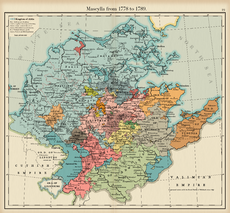 |
|
|
This list details all Kings of Aldia (1647–present). Every single monarch is either of the House of Lünburg or its successor House of Ahnern and Ahnern-Welsbach. With the Mascyllary Revolution in 1924, the monarchy of Aldia is generally considered to be dissolved, even though the constitutional institution and style of "King" or "Queen of Aldia" is retained by the Mascyllary monarch. However, the modern-day Free State of Aldia is defined as a federal semi-presidential republic by its state constitution and therefore de facto without monarchy, but remains within the Mascyllary monarchy at large as a devolved federated state (Reichsland).
| Name | Portrait | Birthday | Reign start | Reign end | Family |
|---|---|---|---|---|---|
| William Louis I the Strong Wilhelm Ludwig der Starke |
 |
11 September 1605 | 27 June 1647 | 3 December 1679 (aged 74) |
Lünburg |
| Frederick Albert I Friedrich Albert |
 |
18 October 1635 | 3 December 1679 | 31 October 1692 (aged 57) |
Lünburg |
| William Louis II Wilhelm Ludwig |
 |
7 February 1651 | 31 October 1692 | 12 March 1714 (aged 63) |
Lünburg |
| George Charles I Georg Karl |
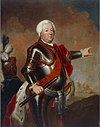 |
14 May 1684 | 12 March 1714 | 26 February 1751 (aged 66) |
Lünburg |
| Frederick Albert II the Great Friedrich Albert der Große |
 |
9 August 1706 | 26 February 1751 | 11 July 1775 (aged 68) |
Lünburg |
| Albert William I Albert Wilhelm |
 |
3 March 1724 | 11 July 1775 | 20 November 1785 (aged 61) |
Lünburg |
| Lucas I Lukas Georg |
 |
16 July 1744 | 20 November 1785 | 2 August 1827 (aged 83) |
Lünburg |
| Lucas II Lukas Augustus |
 |
11 December 1780 | 3 August 1827 | 28 October 1847 Death date: 28 October 1850 (aged 69) |
Ahnern |
| Sophia I Sophia Alexandra |
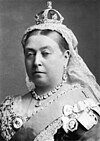 |
15 July 1810 | 2 November 1847 | 23 March 1882 (aged 72) |
Ahnern-Welsbach |
| Frederick I Friedrich Wilhelm |
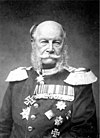 |
13 February 1831 | 24 March 1882 | 5 September 1892 (aged 61) |
Ahnern |
| Louis I Ludwig Eduard Friedrich |
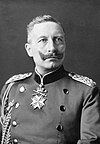 |
31 January 1850 | 6 September 1892 | 29 May 1923 (aged 73) |
Ahnern |
| Maximilian I Maximilian Karl Georg Albert |
 |
12 November 1914 | 5 March 1924 | 14 June 1976 Death date: 28 June 2001 (aged 86) |
Ahnern |
| Lucas III Lukas Albert Theodor Wilhelm |
 |
4 February 1938 | 15 June 1976 | 24 November 2005 Alive as of 2021 (aged 82) |
Ahnern |
| Dorothy I Dorothea Sophia Theresa |
 |
10 October 1987 | 25 November 2005 | present Alive as of 2022 (aged 35) |
Ahnern |



